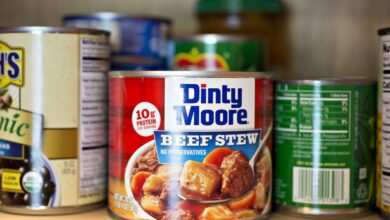If these items are in your medicine cabinet, it’s time to throw them away. Here’s how to do it safely.

Don’t Forget to Check Your Medicine Cabinet: A Guide to Medication Expiration
When it comes to cleaning your home, don’t overlook your medicine cabinet. Just like food, medications and supplements can expire, which means the products lurking in your cabinet may not be as safe or effective as you think.
According to Stacia Woodcock, a pharmacist and pharmacy editor at GoodRx, it’s essential to regularly check your medication’s expiration dates. “It’s easy for expired medication to go unnoticed because people aren’t always in the habit of proactively checking their medication’s expiration dates,” Woodcock told CBS News. “Ultimately it doesn’t matter when you do your check-in as long as you do it regularly.”
Does Expired Medicine Still Work?
Woodcock advises against taking medication after it’s expired. “Expiration dates indicate how long a medication is guaranteed to do what it’s designed to do safely. And they aren’t arbitrary — expiration dates are determined through clinical studies to help ensure medication safety,” she explained.
After the expiration date, medications can become less potent or contaminated with bacteria, which can be dangerous in certain situations. For example, taking expired medication during an asthma attack may prevent you from getting an effective dose. Woodcock emphasized the importance of proactively reviewing your medications to ensure they are safe and up-to-date.
While the FDA acknowledges the health risks of taking expired medications, there are cases where certain properly stored medical products can be used beyond their labeled expiration date if they retain their stability.
Research has shown that some medications can still be safe to take even if their potency has decreased over time. However, there are exceptions such as insulin, liquid antibiotics, and nitroglycerin, which should not be taken past their expiration date.
The Cleveland Clinic recommends considering the type of drug and the expiration date before deciding to take an expired medication. For serious health conditions and prescription drugs, it’s best to consult your healthcare provider for guidance.
Where Should You Store Medication?
To ensure medications remain effective, store them in a cool, dry place. Contrary to popular belief, the bathroom medicine cabinet is not an ideal storage location. Woodcock recommends storing medications in a kitchen cabinet or pantry to prevent them from going bad before their expiration date.
It’s crucial to store medications out of reach of children and pets to avoid accidental ingestion. If a medication appears discolored, has a strange texture, or an unusual odor, it’s best not to take it.
Can You Use Expired Sunscreen?
Although sunscreen may not be considered a medication, it’s important to dispose of it after the expiration date listed on the packaging. The FDA requires sunscreens to retain their original strength for at least three years. If a sunscreen product does not have an expiration date, consider it expired three years after purchase.
For proper storage, the FDA recommends avoiding direct sunlight exposure for sunscreen containers to maintain their effectiveness.
Can You Flush Expired Medications?
The best way to dispose of expired or unwanted medication is at a medication-take-back location. Many pharmacies and healthcare facilities have drop boxes for expired medications. Some medications can also be flushed down the toilet, but only if they are on the FDA’s flush list.
If you need to dispose of medication at home, the FDA recommends mixing it with coffee grounds or kitty litter before throwing it in the household garbage. Remember to remove any labels with personal information before disposal.
Medicine Cabinet Essentials
If you need to restock your first aid supplies, consider having a first aid kit with bandages, ice packs, antibiotic ointment, and an ace bandage on hand. For individuals with chronic medical conditions, prioritize replenishing medications needed in emergency situations such as inhalers, glucose tablets, or epipens.
Other essentials to have in your medicine cabinet include over-the-counter pain relievers and basic cough and cold products.
By following these guidelines for medication expiration and storage, you can ensure the safety and effectiveness of your medications. Remember to consult your healthcare provider for guidance on expired prescription drugs and serious health conditions.





